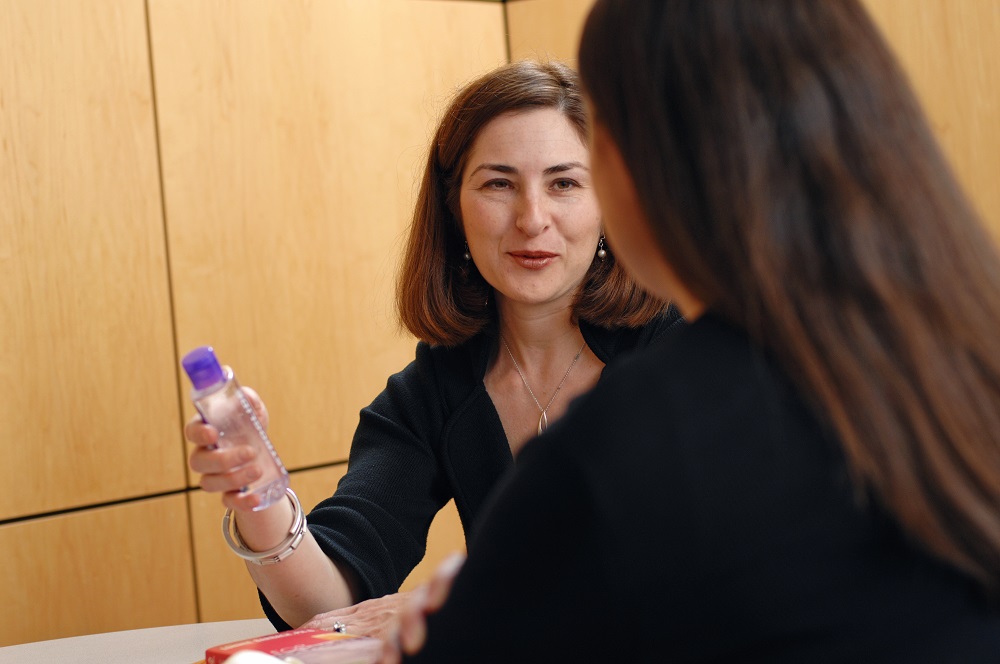Treatment for ovarian cancer often comes with sexual side effects. Although curing the cancer is the main goal for many patients and their doctors, Sharon Bober, PhD, director of Dana-Farber’s Sexual Health Program, is focused on preserving a patient’s quality of life – including her sexual satisfaction.

Bober, with co-investigators Alexi Wright, MD, MPH, a medical oncologist in the Gynecologic Oncology Program at the Susan F. Smith Center for Women’s Cancers, and Christopher Recklitis, PhD, MPH, director of research at Dana-Farber’s Perini Family Survivors’ Center, is leading an intervention to address sexual side effects such as pain, discomfort, and loss of libido in women who have been treated for ovarian cancer. Patients – at any point during their treatment – participate in a small-group, half-day workshop to educate them about these issues, while also exploring the psychological impact of changes in sexuality and intimacy.

The program offers relaxation exercises and information to relieve tension and address the mind-body components of intimacy, and includes practical education on how to improve sexual health and manage discomfort. Bober also discusses the negative way women might talk to themselves about changes in sexuality, and provides strategies for combating these thoughts. Patients leave the first-of-its-kind workshop with an action plan and realistic steps for improving their sexual satisfaction, and afterwards receive phone counseling and questionnaires to assess the intervention’s efficacy.
“This intervention is a powerful collaboration between psychosocial and medical oncology,” says Bober, principal investigator, who notes preliminary results have been overwhelmingly positive. “It allows us to address quality of life in a holistic, comprehensive way.”
Bober and her team are also conducting a focus group to assess the feasibility of moving the intervention online and, eventually, expanding to include other types of gynecologic cancer.
